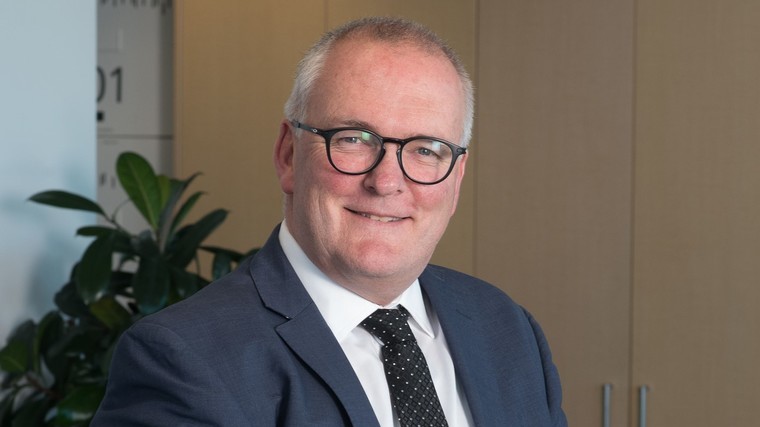Industry body ready for tough times

Dave Harris is confident the Motor Trade Association (MTA) is well positioned to weather any tough times ahead after bolstering its culture of member support and balance sheet during his time on the board.
He stepped down last month after serving on the board for 12 years, including the past six as president, but will remain an active MTA member through the three service stations and a repair shop he runs in Waikato.
Harris told Autofile Online there had been significant changes made at the MTA since he joined the board, including building a closer connection with its 3,800 members nationwide.
“When I first got involved, it was a bit old-fashioned and members were not always happy with what was happening, but I think we’ve moved a long way since then and we’re all sailing in the same direction,” he says.
“We have tried to change the whole culture of the business and how we support members. The relationship with members now is such that they’re able to understand and accept what we’re doing even if they do not necessarily agree with the direction we are heading.”
While Harris, pictured, has been at the forefront of those changes as a board member and president, he is quick to praise the efforts of the people he has worked with at the MTA over the years.
These include Bob Boniface, who he has worked alongside him on the board and has replaced him as president.
“l will miss the job. I’ve been extremely fortunate to lead a team of amazingly dedicated people who made me look good,” adds Harris.
He says another highlight for him has been the diversification of the MTA’s investments, which he hopes will provide benefits to members well into the future.
Previously, members’ funds were invested in traditional ways, such as the MTA building or the 100 per cent ownership of VTNZ, but the money is now spread across a more diverse, high-performing range of investments anchored by a portfolio of local and global shares, bonds and private equity.
Some of the more significant changes have included holding a 40 per cent share of VTNZ while selling the remaining majority to German automotive testing giant, Dekra SE.
The MTA also purchased Auxo Software late last year, which is the parent company of the SAM, Orion, Autoline and other automotive software systems.
Harris says this will provide an income that “helps offset subscription fees and also gives us an influence on a product that benefits a great number of members”, and he expects the board will continue looking for similar opportunities.
“MTA’s balance sheet is very healthy and able to weather a couple of tough years, which are most likely on their way.”
Harris also believes the influence the MTA can have on helping shape policies that affect the automotive industry is increasing, which he says is critical with plenty of new legislation in the pipeline around clean cars and emissions.
“I think the advocacy work we have been doing lately, especially around the clean cars package, has gone to another level of research in order to support the arguments we put forward.
“As a result, we’re getting more cut through and getting invited to provide feedback, which can only be good for our members and the industry.”
Fresh challenges
He notes the clean car discount and standard will create fresh challenges for businesses, the majority of whom are still having to manage the impacts of the Covid-19 pandemic.
“It’s a tough time in business and all the sectors have had challenges to find their way through,” he explains.
“Dealers have issues with stock and the changing types of cars coming in with what the government is trying to achieve with its climate-change crusade.
“We have a government pushing for targets and we have manufacturers saying they’re not achievable.
“Some of the initiatives the government is introducing, I believe, will age the fleet rather than modernise it because it will add value to second-hand vehicles we currently have.
“There’s a lot of talk about environmentally friendly vehicles coming in but there’s still millions of other vehicles that will be out there for some time. These are the greatest source of New Zealand’s automotive emissions, and introducing a government-supported test and service regime will have the greatest positive impact on the air we breathe.
“Change was on its way but trying to accelerate it is a pretty bold policy to have and it will be interesting to see what happens.”
Other sectors of the industry have faced their own difficulties, but Harris notes the most common problem the MTA has been hearing about from its members recently is trying to find staff.
The issue has grown since Covid-19 led to the border being closed in an effort to minimise any spread of the virus.
“The problem used to be more limited to qualified talent but now people are struggling to employ any staff at all,” explains Harris.
“Finding mechanics is an ongoing issue and we’re not able to bring young people through fast enough to support what we’re missing with immigration at the moment.
“Even if we opened the international borders tomorrow, other countries are also screaming out for people so we might not get an influx of people coming in.
“With new types of vehicles coming in we will also soon be looking at different skills and talents.”
Despite ongoing challenges, Harris believes the MTA has become more agile in recent times and he is impressed at how resilient members are.
“It’s been refreshing over the past 12 years to see how the businesses of our 3,800 members have been strong, have been growing and they have faced adversity on a number of occasions but keep surviving.
“It’s beyond me how they survive sometimes. We haven’t had that many fail during Covid and that’s a reflection on the members and, I believe, how the MTA supports them.
“We have had earthquakes, financial hiccups and then Covid came along, which was something new and no one knew what the future would look like.
“I think the next 10 years in this industry are going to be really interesting.”





